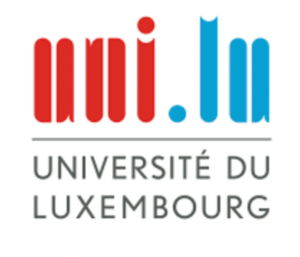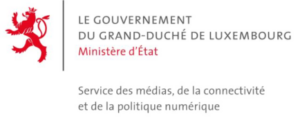3rd Medialux conference on the challenges of disinformation and its regulation (French & EU perspectives)
Project in brief
TIMELINE
- 04/2023 -
- 04/2023
Link
Partners
University of Luxembourg
Government of the Grand Duchy of Luxembourg
Tags

Project description
In the framework of the Medialux project of the University of Luxembourg, coordinated by Dr. Raphaël Kies and Dr. Stéphanie Lukasik, the researcher in Political Sciences, Dr. Julien Giry will hold an online conference entitled “French and European issues of disinformation and its regulation: from necessary awareness to moral panic” on 21 April 2023 from 2 to 3.30 pm. Join us via this link.
Subject of the conference
Charlie Hebdo attacks, the elections of Trump and Bolsonaro, the Brexit, the Covid-19 pandemic and the Russian invasion of Ukraine have focused the attention of journalists and public authorities, first at the French and then at the European level, on a phenomenon that is immediately described as massive, unprecedented and dangerous, and which needs to be tackled vigorously: disinformation. In the context of this seminar, we will retain, although we will discuss the problematic aspects, a broad definition of disinformation, as provided by the 2022 Code of Practice on Disinformation (Code renforcé des bonnes pratiques de lutte contre la désinformation), which encompasses both content that falls under the heading of fake news, conspiracy theories, foreign influence operations, political propaganda or simple misinformation.
From there, we will look back at the defining moment of the Charlie Hebdo attacks in France in 2015 in order to show how disinformation and conspiracy were the responses used by the authorities to explain why a part of the population did not adhere to the ‘Je suis Charlie’ narrative. We will therefore return to the social conditions in which disinformation was raised to the status of a public problem and the epistemic representations that were at work in the framing of these notions by socially situated actors, which has since paved the way for the implementation of successive mechanisms to curb disinformation. Indeed, since 2015, about ten legislative (anti-fake news laws, Avia, separatism, etc.) and institutional (Viginum, Web Promoters, Bronner Commission, etc.) measures have been put in place, the paradoxical effect of which, due in part to their media coverage, is that they only reinforce the idea of increasingly massive and dangerous disinformation, against which the fight is ever more imperative. From a necessary awareness of the undoubtedly limited dangers that disinformation could pose to representative regimes, the systemic fight against disinformation has given rise to a veritable moral panic on the part of some political and media elites.
Far from being limited to the French case, this moral panic finally reached the European authorities thanks to the Covid-19 pandemic and even more so after the Russian invasion of Ukraine and led to the implementation of several measures (EDMO, reinforced code, DSA, etc.) that should also be questioned in the context of the upcoming elections in 2024.
The speaker
Julien Giry is a Doctor in political science, postdoctoral researcher at the University of Tours and adviser in charge of disinformation issues at the Belgian Broadcasting Council (Conseil Supérieur de l’Audiovisuel).
An overview of the publications can be consulted below.
GIRY Julien, NOUVEL Damien, « Étudier les discours « conspirationnistes » et leur circulation sur Twitter. Les théories du complot comme objets du traitement automatique du langage et de l’analyse des données textuelles », Mots. Les langages du politique, 2022/3 (n° 130), p. 37-55.
GIRY Julien, « Fake news et théories du complot en période(s) pandémique(s) », Quaderni, 2022/2 (n° 106), p. 43-64
GIRY Julien, « Les fake news comme concept de sciences sociales. Essai de cadrage à partir de notions connexes : rumeurs, théories du complot, propagande et désinformation », Questions de communication, 2020/2 (n° 38), p. 371-394
Giry, Julien, « New Age Anthropology, New Religious Movements and Conspiracy Theories. The David Icke’s Shape-Shifting Lizards Conspiracy » in Francesco Piraino, Marco Pasi, Egil Asprem (eds.), Religious Dimensions of Conspiracy Theories: Connecting Old and New Trends, 2021.
Giry, Julien, « “Muslim Ritual Slaughtering is a Tool of Islamization”. On Idenditarian Mobilizations in France through the “Great Replacement” Conspiracy Theory: the Case of Riposte Laïque » in Andreas Onnefors (eds.), Conspiracy Theories in and about Europe, Londres : Routledge Publishers, 2021.
Giry, Julien, « Conspiracy Theories in Political Science and Political Theory. An Introduction » in Peter Knight, Michael Butter (eds.), The Routledge Handbook on Conspiracy Theories, Londres : Routledge Publishers, 2020.
Giry, Julien, Grüpinar, Dogan, « Functions and Uses of Conspiracy Theories in Authoritarian Regimes » in Peter Knight, Michael Butter (eds.), The Routledge Handbook on Conspiracy Theories, Londres : Routledge Publishers, 2020.
Giry, Julien, « Quand la radicalité en vient à questionner la rationalité (en) politique. Lyndon LaRouche, une étude de cas » in Stéphane François (dir.), Un XXIe siècle irrationnel? Analyses pluridisciplinaires des pensées « alternatives », Paris : Éditions du CNRS, 2018.
Giry, Julien, Taïeb, Emmanuel, Tournay, Virginie, « Logiques numériques des radicalisations », Quaderni, n°95, hiver 2017/2018.
Giry, Julien, « Les théories du complot à l’heure du numérique », Quaderni, n°94, 2017.
Giry, Julien, « Conspiracy Theories. Archeology and Morphology of A Political Myth », Diogenes, n°64- 65, 2019.
Giry, Julien, « Panic in Our Plates. Contemporary Legends and Conspiracy Theories on Food », Contemporary Legends, vol.15, 2019.
Giry, Julien, « Devenir complotiste : trajectoires de radicalisation et de professionnalisation de deux groupes de citoyen(ne)s enquêteur(rice)s », Critique & Humanism, n°49, 2018.
Giry, Julien, Tournay, Virginie, Taïeb, Emmanuel, «Les radicalisations. Culture et postmodernité », Quaderni, n°95, hiver 2017/2018.
Giry, Julien, «Become a Full-Time Conspiracy Theorist. Radicalization and Professionalization Trajectories of Two Citizen Sleuths Groups », Critique & Humanism, n°48, 2017.
Giry, Julien, « Étudier les théories du complot en sciences sociales. Enjeux et usages », Quaderni, n°94, 2017.
Giry, Julien, « Le “complotisme 2.0”, une étude de cas de vidéo recombinante : Alain Soral sauve Glenn et Tara dans The Walking Dead », Quaderni, n°94, 2017.
Giry, Julien, « A Specific Social Function of Rumors and Conspiracy Theories: Strengthening Community’s Ties in Trouble Times. A Multilevel Analysis », Slovak Ethnology, n°65, vol. 2, 2017.
Giry, Julien, « Le mouvement LaRouche à l’international. Impact du territoire et stratégies politiques d’implantation à l’échelle nationale et locale. Approche comparée France États-Unis », Politeïa, n°28, 2015.
Giry, Julien, « Le conspirationnisme. Archéologie et morphologie d’un mythe politique moderne », Diogène, n°249-250, 2015.
Giry, Julien, «Les partis antimaçonnique et populiste. Une approche démocratique du phénomène populiste aux États-Unis au XIXe siècle », Politeïa, n°24, 2013.



